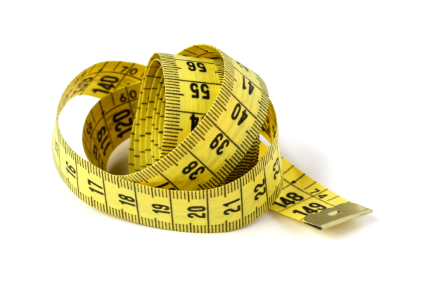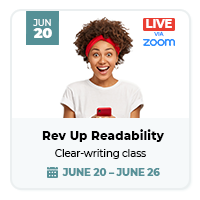Get 33 metrics about your clarity
There are a million readability tools out there. Among my favorites: STORYToolz readability analyzer.

Plug in a chunk of copy, and STORYToolz will deliver a wealth of readability information — 33 pieces of data in all, from the words you use to start your sentences to the number of “to be” verbs.
Whether you’re writing email marketing messages or intranet articles, here are some things to look for in this readability scoring algorithm:
1. Reading levels
Since 1847, scholars and others have been measuring how hard copy is to read. Over the years, these folks have created some 200 readability indexes — from the Flesch to the Fry, from the Fog to the SMOG, from the Spache to the LIX.
With StoryToolz, you’ll get seven readability test scores, including the:
- Automated Readability Index (ARI)
- Coleman Liau index
- Flesch-Kincaid Grade Level index
- Flesch Reading Ease index
- Gunning Fog index
- Simple Measure of Gobbledygook, or SMOG, index
All of these indexes boil readability grade levels down to a mathematical formula. Those formulas usually comprise two factors:
- Sentence length. This measures “syntactic,” or structural, difficulty. Most formulas measure the average number of words/sentence.
- Word length. This measures “semantic,” or meaning, difficulty. Most formulas measure the average number of syllables or characters per word.
Don’t like your score? Write shorter, clearer sentences and choose shorter, more familiar words.
2. Sentence length
You’ll find everything from words per sentence to characters per word in this section of STORYtoolz. Shorter, clearer sentences are easier to read.
3. Word usage
Here, you’ll identify opportunities to:
- Turn polysyllabic words into small ones
- Strengthen weak verbs
- Reduce the number of words that link phrases into long sentences
- Clarify confusing words
4. Sentence beginnings
Subject-verb-object sentences are the most readable. Here, you’ll be able to make sure most of your sentences start with a noun, followed almost immediately by a verb.
How long should your message be?
Would your message be twice as good if it were half as long?
Yes, the research says. The shorter your message, the more likely readers are to read it, understand it and make good decisions based on it.
 So how long is too long? What’s the right length for your piece? Your paragraphs? Your sentences? Your words?
So how long is too long? What’s the right length for your piece? Your paragraphs? Your sentences? Your words?
Find out at Rev Up Readability — our clear-writing workshop, which starts June 20.
There, you’ll use a cool (free!) tool to analyze your message for 27 readability metrics. You’ll leave with quantifiable targets, tips and techniques for measurably boosting readability.
Save up to $100 with our group discounts.
